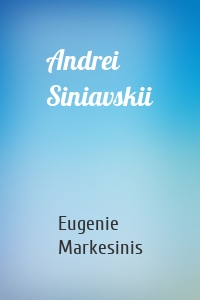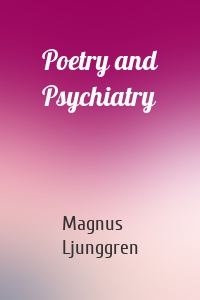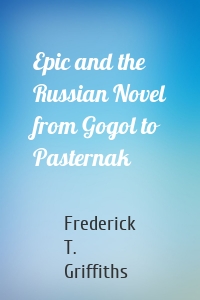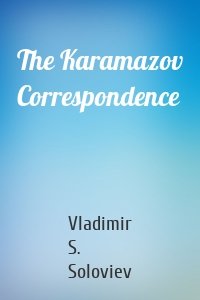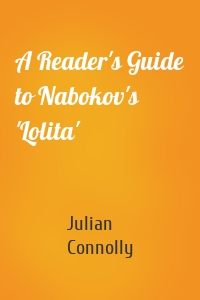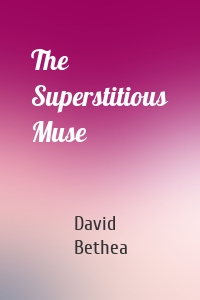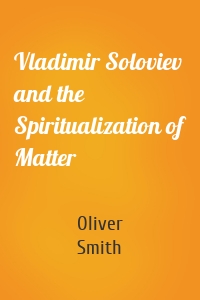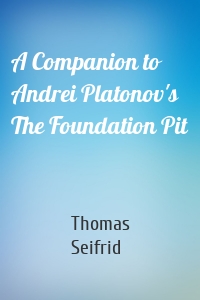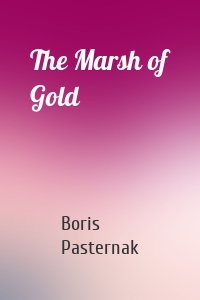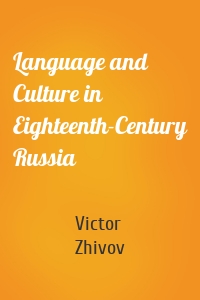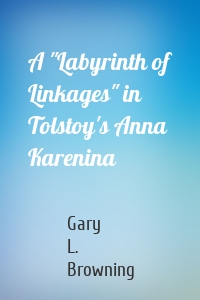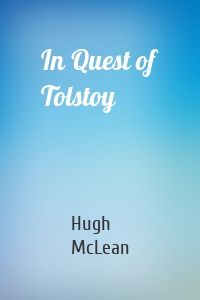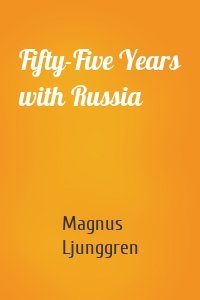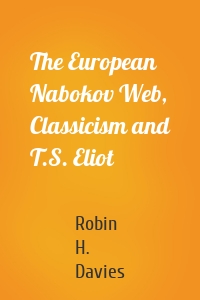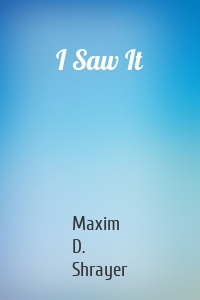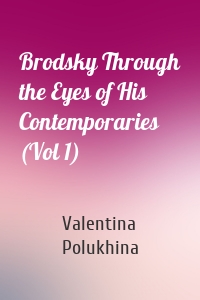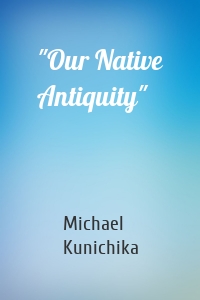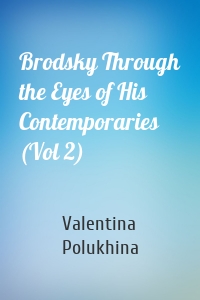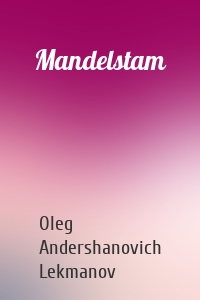Серия "Studies in Russian and Slavic Literatures, Cultures, and History"
27 кн.Скачать лучшие книги серии Studies in Russian and Slavic Literatures, Cultures, and History - автор Eugenie Markesinis в формате fb2 или читать онлайн, бесплатно и без регистрации. Читаемые, полные версии книг, без сокращений - на сайте Knigism.online. Скачать книги полностью в количестве 27 шт.
Poetry and Psychiatry
A century ago the Symbolists in Moscow and St. Petersburg dreamed of a fundamental transformation of life in Russia. From their reading of signs in the heavens, these poets, philosophers, and mystics sensed that tsardom was on the threshold of an apocalyptic upheaval. They were influenced by Vladimir Solovyov and Friedrich Nietzsche, but under the impact of the 1905 Revolution they later also subscribed to current radical political ideas. The eventual collision between these dreams and tsarist...
| Автор | Magnus Ljunggren |
Keys to The Gift
Yuri Leving's Keys to “The Gift”: A Guide to Vladimir Nabokov's Novel is a new systematization of the main available data on Nabokov's most complex Russian novel, The Gift (1934–1939). From notes in Nabokov's private correspondence to scholarly articles accumulated during the seventy years since the novel’s first appearance in print, the work draws from a broad spectrum of existing material in a succinct and coherent way, as well as providing innovative analyses. The first...
| Автор | Yuri Leving |
Epic and the Russian Novel from Gog...
Epic and the Russian Novel from Gogol to Pasternak examines the origin of the nineteen- century Russian novel and challenges the Lukács-Bakhtin theory of epic. By removing the Russian novel from its European context, the authors reveal that it developed as a means of reconnecting the narrative form with its origins in classical and Christian epic in a way that expressed the Russian desire to renew and restore ancient spirituality. Through this methodology, Griffiths and Rabinowitz dispute...
| Автор | Frederick T. Griffiths |
The Karamazov Correspondence
This is the first coherently annotated and chronologically arranged collection of VSS’s significant letters in English or any other language (including Russian)The letters contain seminal discussions of works that would later become famous, including arguments defending minority nationality and religious rights in RussiaThe letters provide numerous poems (along with transliterations) that appear nowhere else
| Автор | Vladimir S. Soloviev |
Ivan Konevskoi
Ivan Konevskoi: “Wise Child” of Russian Symbolism is the first study in any language of Ivan Konevskoi – poet, thinker, mystic— – for many decades the “lost genius” of Russian modernism. A fresh and compelling figure, Konevskoi plunged deeply into the currents of modern mystical thought and art in the 1890s. A passionate searcher for immortality, he developed his own version of pantheism meant to guard his unique persona from dissolution in the All-One. The poetry of Tiutchev, Vladimir Solov’ev...
| Автор | Joan Delaney Grossman |
A Reader's Guide to Nabokov's 'Loli...
One of the most fascinating and controversial novels of the twentieth century, Vladimir Nabokov’s Lolita is renown for its innovative style and notorious for its subject matter and influence on popular culture. A Reader’s Guide to Nabokov’s “Lolita” carries readers through the intricacies of Nabokov’s work and helps them achieve a better understanding of his rich artistic design. The book opens with a detailed chronology of Nabokov’s life and literary career. Chapters include an analysis of the...
| Автор | Julian Connolly |
The Superstitious Muse
For several decades David Bethea has written authoritatively on the “mythopoetic thinking” that lies at the heart of classical Russian literature, especially Russian poetry. His theoretically informed essays and books have made a point of turning back to issues of intentionality and biography at a time when authorial agency seems under threat of “erasure” and the question of how writers, and poets in particular, live their lives through their art is increasingly moot. The lichnost’ (personhood,...
| Автор | David Bethea |
Vladimir Soloviev and the Spiritual...
While he is widely acknowledged as the most important Russian thinker of the nineteenth century, Vladimir Soloviev’s place in the landscape of world philosophy nevertheless remains uncertain. Approaching him through a single synoptic lens, this book foregrounds his unique envisioning of the interaction between humanity and the material world. By investigating the development of a single theme in his work—his idea of the “spiritualization of matter”, the “task” of humanity—Smith constructs a...
| Автор | Oliver Smith |
A Companion to Andrei Platonov's Th...
Written at the height of Stalin's first «five-year plan» for the industrialization of Soviet Russia and the parallel campaign to collectivize Soviet agriculture, Andrei Platonov's The Foundation Pit registers a dissonant mixture of utopian longings and despair. Furthermore, it provides essential background to Platonov's parody of the mainstream Soviet «production» novel, which is widely recognized as one of the masterpieces of twentieth-century Russian prose. In addition to an...
| Автор | Thomas Seifrid |
The Marsh of Gold
Major statements by the celebrated Russian poet Boris Pasternak (1890-1960) about poetry, inspiration, the creative process, and the significance of artistic/literary creativity in his own life as well as in human life altogether, are presented here in his own words (in translation) and are discussed in the extensive commentaries and introduction. The texts range from 1910 to 1946 and are between two and ninety pages long. There are commentaries on all the texts, as well as a final essay on...
| Автор | Boris Pasternak |
Language and Culture in Eighteenth-...
Victor Zhivov's Language and Culture in Eighteenth-Century Russia is one of the most important studies ever published on eighteenth-century Russia. Historians and students of Russian culture agree that the creation of a Russian literary language was key to the formation of a modern secular culture, and this title traces the growth of a vernacular language from the «hybrid Slavonic» of the late seventeenth century through the debates between «archaists and innovators» of the early nineteenth...
| Автор | Victor Zhivov |


